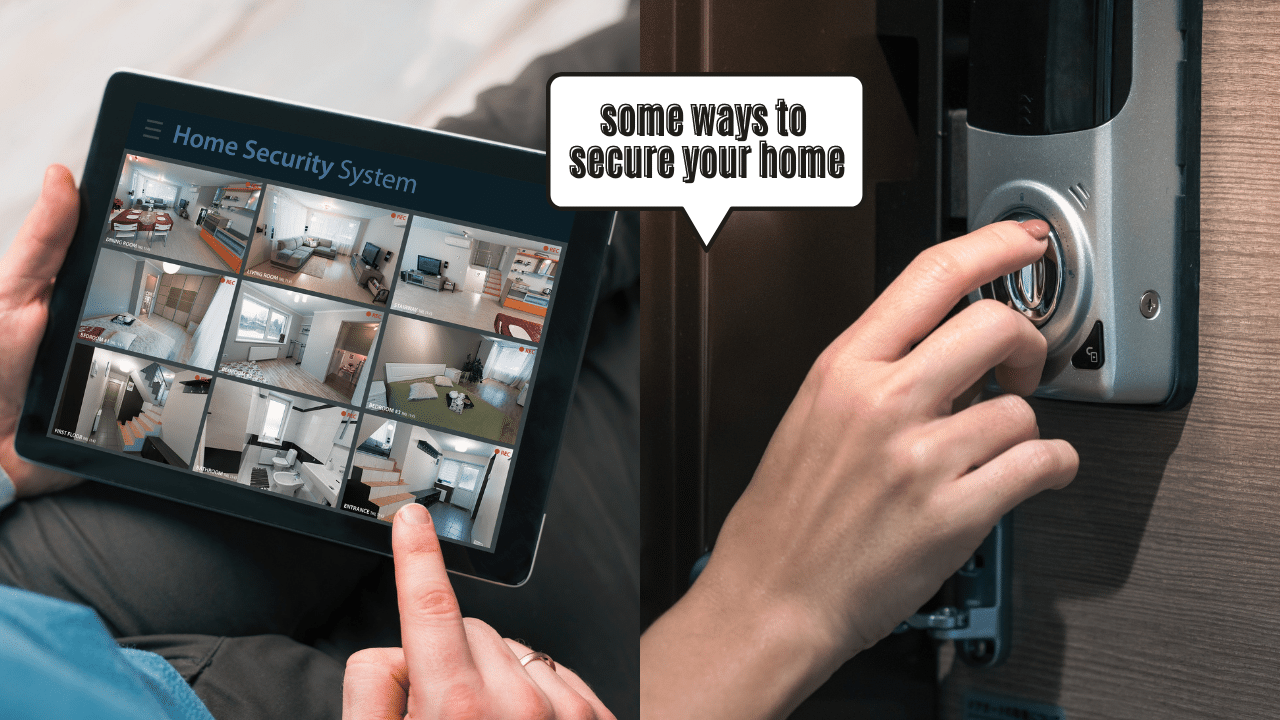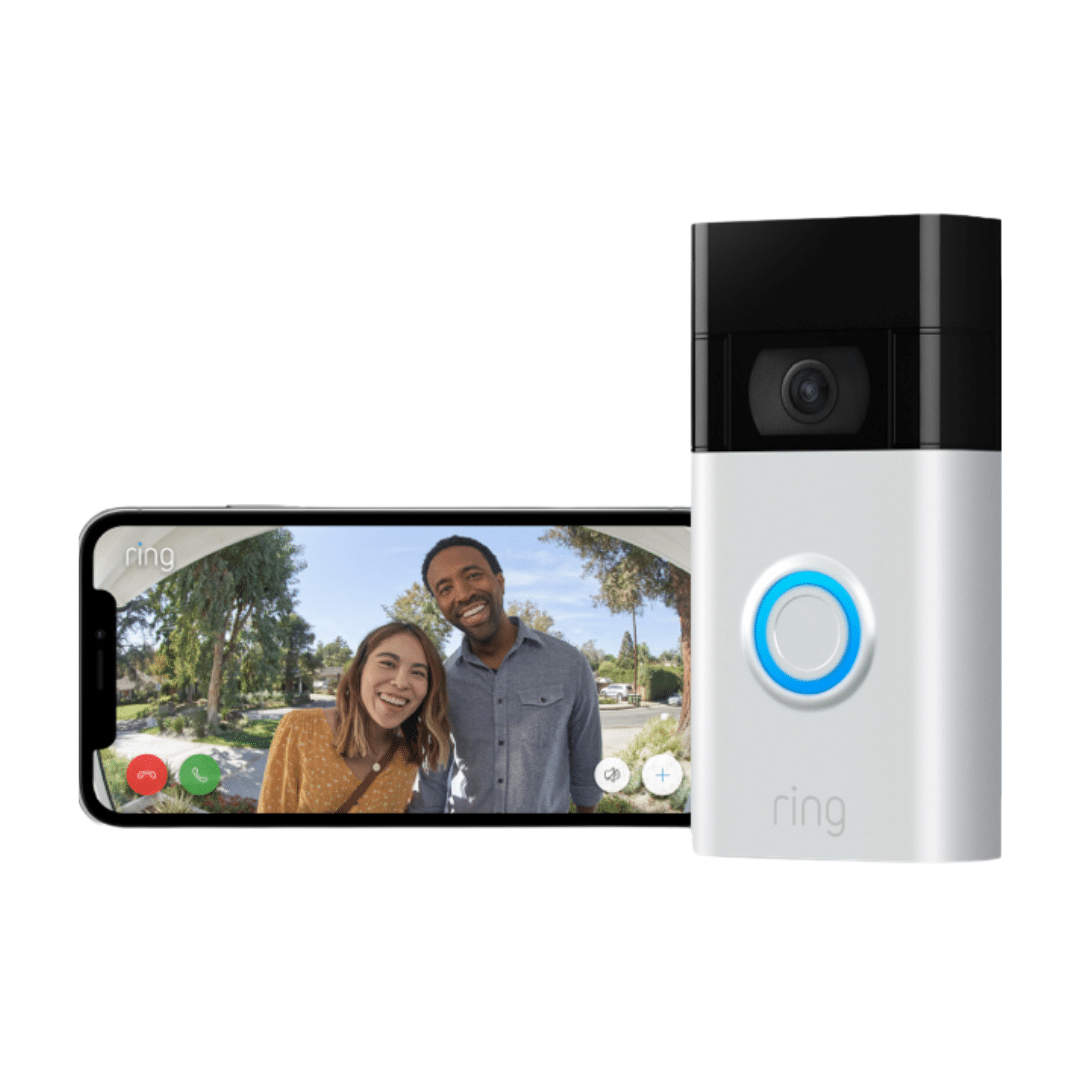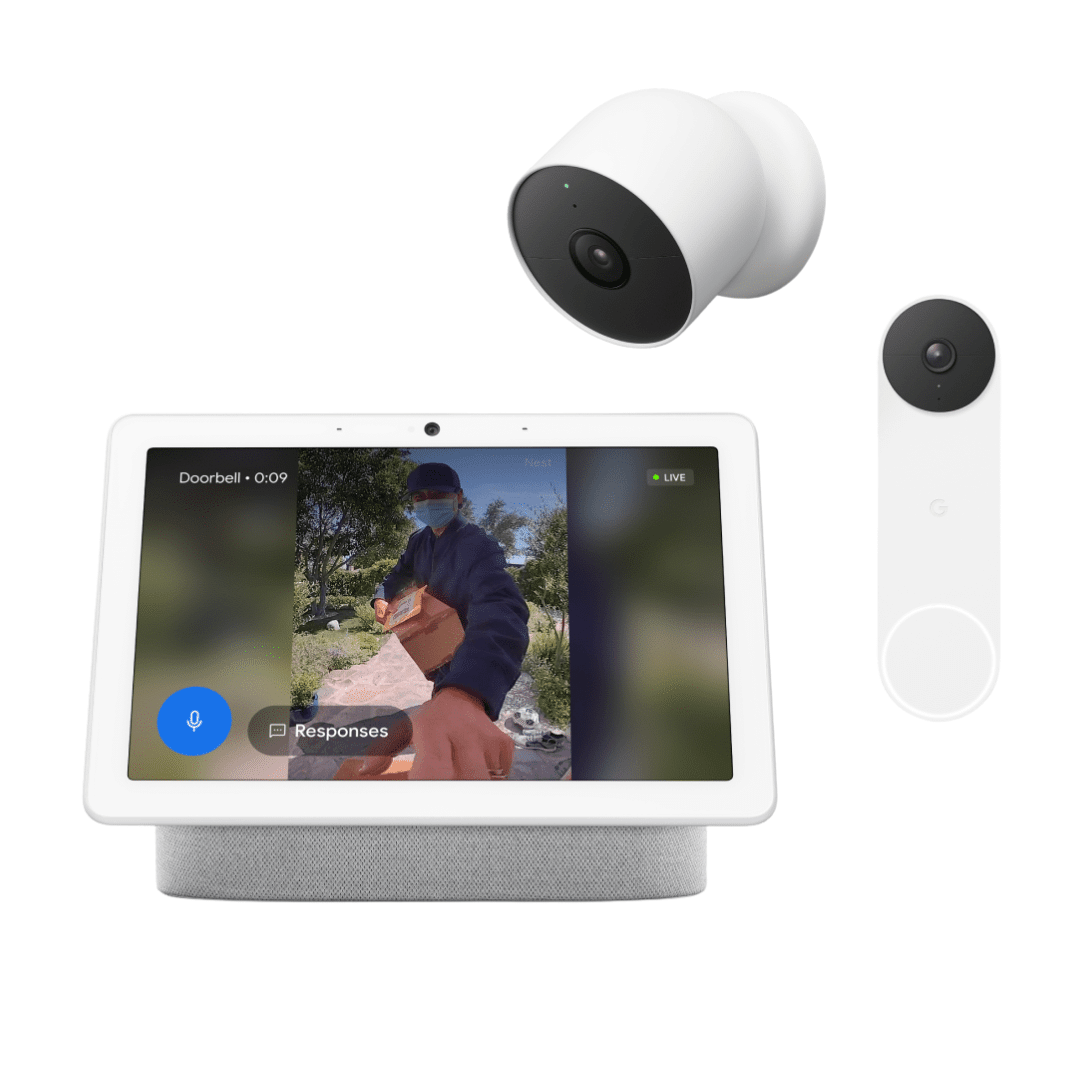Did you know that a home is broken into in the US about every 15 seconds? Despite this alarming figure, many homeowners only take minimum precautions to keep intruders out of their homes– prompting the need for a better home security system.
That said, we've compiled some quick and easy home security system safety tips you can follow. Keep yourself protected against an unwelcomed and costly attack on your home while ensuring your loved ones and most priced belongings are always safe!
8 Easy Home Security Tips You Should Know

Since it's crucial to keep your home, family, and priceless possessions safe and sound, here are the best home security tips you must never forget.
1. Inspect Your Doors
Your home's front entrance is one of intruders' most often used entry points. Doors rank among the most significant threats to the security of your house. As such, you need to examine each of your doors to ensure they are secure 24/7. (Related: What is the Safest Front Door for Security? Home Safety 101)
Check your locks to ensure they are correctly installed and operating as intended. If you don't already have one, get a deadbolt. To improve the security of your door, think about installing additional hardware such as a smart lock, strike plate, and a video doorbell. Ensure the door frames are sturdy and the hinges are secure for all of your outside doors. If you're moving into a house that was formerly someone else's residence, change the door locks for your safety. (Related: Everything You Need to Know About the Brinks Door Sensor: Home Security System)
2. Don’t Forget to Lock your Doors and Windows
Although this next tip might seem slightly too obvious, did you know that one-third of home burglars gain entry through unlocked doors and windows?
We get it. It's natural to feel secure in the neighborhoods we know and love, but it's crucial to practice caution and lock every access that could open to your home. This sensible precaution can easily keep your property off an intruder's list. (Related: Are Security Window Screens Worth It? (Definition, Advantages, Costs & Alternatives))
3. Install a Home Alarm System
Simply put, there are fewer burglaries in homes with alarm systems than in homes without one. Many potential burglars will be deterred merely by the sight of your home security system.
However, we often hear discouraged homeowners due to the alleged high costs or complicated maintenance requirements. Fortunately, there are plenty of reasonably priced options today. Thanks to smartphone technology, remote management of your alarm system are now easier than ever.
4. Buy a Home Security Camera


Most home security systems available today already come with cameras, but you may also purchase them separately to add to your existing system. Cameras can both prevent criminals and aid in your gathering of evidence if your home is broken into. (Knock on wood!). The increased sense of security that house cameras may offer daily is something that many homeowners appreciate. Homeowners may monitor their property even while away and get a clear image of people who knock on the door, thanks to gadgets like the Ring Home Security System and Google Nest Cam.
5. Install Motion Detector Lighting
Many break-ins occur during the day when lighting isn't a concern. But, studies have found that motion detectors discourage burglars because of their abrupt onset and potential to alert neighbors to suspicious activity, mainly when your neighbors know you are away and wouldn't be turning on the lights yourself. Putting motion detector lights gives an additional layer of safety to your home's outside spaces. Additionally, they are simple to install and cost-effective.
6. Add a Deadbolt Protector
Many burglars are skilled at picking locks, including deadbolts that appear pick-proof. Hence, a deadbolt protector (which fits a lock over your deadbolt to prevent it from turning) is one option to give your doors some extra security. You can purchase deadbolt guards on Amazon or at your local hardware stores.
7. Burglar-proof the Garage
More intruders increasingly choose to enter homes using the garage as their entryway. Even if they cannot enter the house, they may swipe valuable items stored in the garage. Make it a routine to lock the garage's inner and external doors to ensure your home's safety. You might also consider storing your garage door opener inside your home. This can prevent a burglar from taking it from your car.
If your garage has a security code, keep it a secret and never mention the combination in front of visitors, neighbors, or anyone else. Listed below are a few more simple strategies to keep your garage safe and sound:
8. Place Your Valuables in a Safe
Despite our vigilance, burglars may still sometimes manage to enter your home. While it's nearly impossible to protect all your valuables, it's a good idea to stash your priceless belongings in a locked, secure safe. This includes the likes of jewels, cash, important papers, and family heirlooms. Doing so will give you the peace of mind that the things most important to you are always safe.
Final Thoughts
All this advice on home security can help you feel safer– but it doesn't stop there. A safe home depends on your preventive measures and the security equipment you install. Do not forget to lock your doors and windows when you are away from the house or at night. You want to exercise caution while using spare keys. If you have an alarm system, a good rule of thumb would be to update the code once a year.
Your household can avoid becoming another home burglary statistic by following these few simple tips for home security.
Frequently Asked Questions (FAQs)
How much does a security system cost?
Home security systems can range widely in price depending on the level of security you need. Basic packages typically cost between $50 and $600, and monthly monitoring fees range from $10 to $35.
What features are available in modern home security systems?
Sensors and control panels are the essential components of advanced security systems, which are combined with additional crime-deterring equipment. Glass break sensors and wall-mounted panic buttons are a few examples of simple add-ons. Both during medical emergencies and home invasions, panic pendants have saved lives.
Key-coded door locks and a smartphone as remote control are some of the other features of advanced security. These are particularly well-liked by homeowners who regularly get visitors, such as doctors, dog walkers, and babysitters. Providing yet another layer of home security are surveillance cameras. Cameras can be installed in control panels to take still photos or videos throughout the house and the outdoors. One type of doorbell security camera lets you view surveillance footage on your smartphone and sends mobile notifications when the doorbell rings. When speaking with the visitor, you can give the impression that you are home.
Should I choose a hardwired or wireless security system?
Wireless security systems and hardwired systems each have their advantages and disadvantages. Despite being the most reliable option, the hardwired system is still vulnerable to cutting the wires. It also requires more work to install. There are more places where you can use wireless systems, which can be installed in about 30 minutes without professional help. Since they are portable, they can be moved easily from one property to another. Wireless systems also use more powerful cellular signals than cell phones. However, its downside is being vulnerable to poor signal and electromagnetic interference.
Do wireless security systems work during home power failures?
Some wireless security systems can still operate during power outages depending on how the system communicates with the monitoring center. If the internet or VoIP operates, the alarm system will disconnect during an internet outage. However, if it uses a cellular radio, the alarm system's communication will still be functional even without power or connection.
